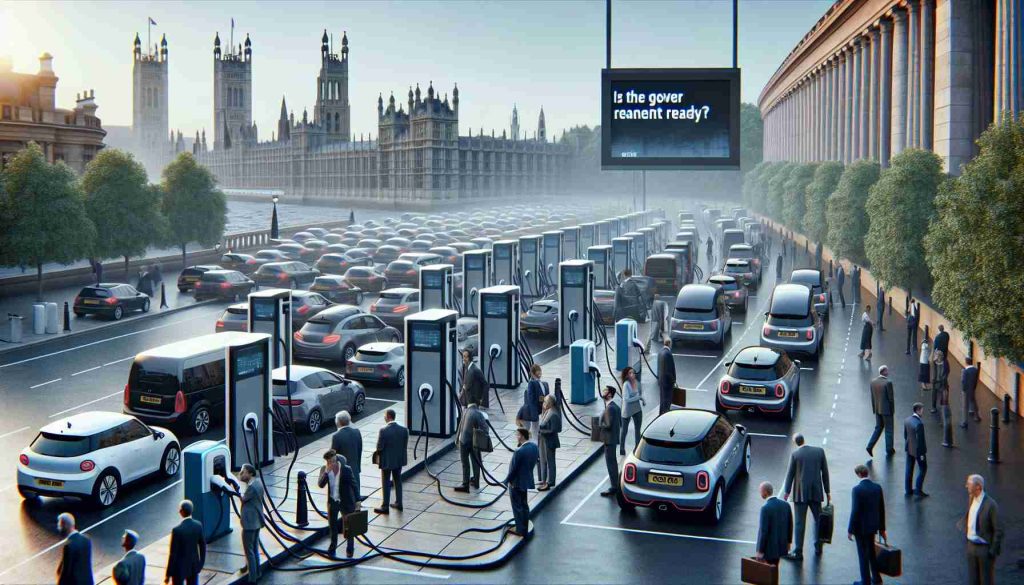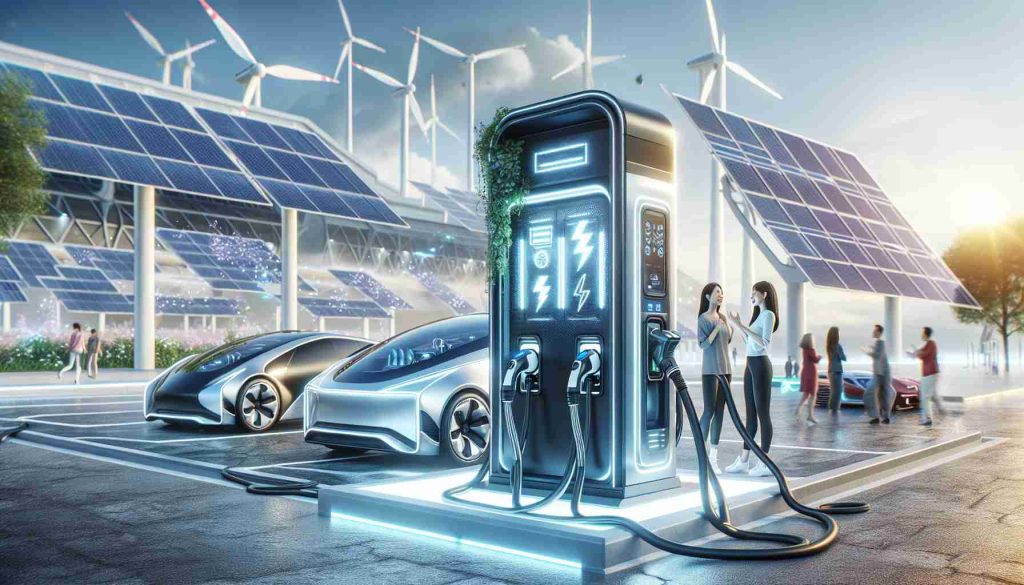Challenges and Opportunities Ahead for the UK Automotive Sector
The UK automotive landscape is bracing for tough times in 2025, with critical factors threatening market stability. A new report from Auto Data Solutions (ADS) highlights looming issues stemming from the rapid shift to electric vehicles (EVs) without adequate preparation, suggesting that profit and efficiency are at risk.
Recent trends reveal a troubling drop in confidence regarding the future value of EVs, which is likely to result in escalated leasing costs and retail prices. As manufacturers are pushed to meet the Zero Emission Vehicle (ZEV) mandate, the complex pricing strategies needed may leave EV ownership increasingly unaffordable for many consumers.
The pressure isn’t confined to pricing, as the rise in vehicle recalls due to evolving technologies adds another layer of concern. Dealers will need to enhance their customer databases to manage recalls effectively and provide essential services. With over half of dealer records being inaccurate, maintaining customer relationships will be crucial to capitalize on these opportunities.
Moreover, the reduced servicing needs of EVs can create a “servicing gap,” threatening traditional revenue streams for dealers. This challenge can be met by focusing on proactive customer engagement, offering new services such as battery health checks and diagnostics, and ensuring accurate customer contact information.
In conclusion, while 2025 presents formidable challenges for the UK automotive market, savvy dealers can turn these issues into avenues for growth and innovation by prioritizing customer relationships and data management.
The Broader Implications of Changes in the UK Automotive Sector
The ongoing transformation within the UK automotive sector, particularly the shift towards electric vehicles (EVs), extends beyond immediate market dynamics and consumer pricing. As the country transitions to greener technologies, the implications for society and the global economy are profound and multifaceted.
Culturally, the increasing prevalence of EVs represents a broader societal shift towards sustainability. This movement promotes greater environmental awareness and encourages citizens to reconsider their carbon footprints. Public mindsets are evolving as well, with younger generations prioritizing environmentally friendly options, thereby influencing consumer behavior across various sectors.
From an economic standpoint, the rise of EVs could lead to significant changes in job markets. Traditional automotive manufacturing skills may become obsolete, raising concerns about employment for many factory workers. Conversely, there will be an increasing demand for jobs centered on EV production, software development, and battery technology—potentially creating a more skilled workforce but also necessitating comprehensive retraining programs.
The environmental potential of EV mass adoption is immense, with the UK striving to meet its carbon neutrality goals by 2050. However, attention must be given to the sourcing of raw materials for batteries, often linked to environmental degradation and human rights abuses in mining industries. Future trends may include innovations in battery recycling and alternative energy sources—critical for ensuring the environmental benefits of EVs are fully realized.
In summary, the UK’s automotive sector is on the cusp of significant change that carries forward-reaching consequences. The challenge will be navigating these shifts responsibly to harness potential benefits while mitigating risks to society, economy, and the environment.
The Future of the UK Automotive Sector: Navigating Change and Embracing Innovation
Challenges and Opportunities Ahead for the UK Automotive Sector
The UK automotive industry is at a pivotal moment as it faces a series of challenges and opportunities projected for 2025. The transition to electric vehicles (EVs) is not merely a technological shift; it is a paradigm change that requires careful navigation to ensure market stability.
Key Issues Impacting the Market
A recent report by Auto Data Solutions (ADS) outlines several critical factors affecting the automotive landscape. The accelerated move towards EVs without adequate infrastructure and preparation could threaten profit margins and operational efficiency across the sector.
Increased Costs and Pricing Strategies
A noticeable decline in confidence regarding the long-term value of EVs has emerged, likely leading to increased leasing costs and inflated retail prices. This trend emphasizes a crucial need for automakers to adopt sophisticated pricing models that can project value over time while also engaging consumers. The Zero Emission Vehicle (ZEV) mandate is a driving force behind these changes, pushing manufacturers to innovate rapidly, but at what cost to the consumer?
The Impact of Vehicle Recalls
Another pressing concern is the growing number of vehicle recalls prompted by evolving automotive technologies. As a response, dealerships will have to significantly enhance their customer management systems to efficiently handle recalls and provide timely services. With a staggering portion of dealer records proving to be inaccurate, brands must prioritize maintaining accurate customer information to leverage these situations into relationship-building opportunities.
Addressing the Servicing Gap
Electric vehicles generally require less frequent servicing than their internal combustion engine counterparts, creating a “servicing gap” for dealerships. To counteract this loss of traditional revenue, dealers should pivot towards innovative service offerings. This could include regular battery health checks, diagnostic services, and customer education programs regarding EV maintenance. By proactively engaging customers with these additional services, dealerships can cultivate loyalty and new revenue streams.
Innovation and Sustainability
The UK automotive sector is under pressure to innovate, which includes embracing sustainable practices. The demand for greener technology is accelerating, pushing manufacturers to not only develop EVs but also improve production methods that lessen environmental impacts. The sector needs to stay ahead of regulatory requirements and consumer expectations regarding sustainability.
Customer Engagement and Data Management
For dealers, the key to thriving in this challenging environment lies in robust customer engagement strategies and effective data management. Utilizing technology to collect and analyze customer preferences will help inform service offerings and strengthen customer relationships. Implementing integrated Customer Relationship Management (CRM) systems can enhance these efforts significantly.
Predictions and Market Insights
Looking forward, the automotive industry must adapt to the evolving landscape characterized by:
– A rise in electric vehicle sales, leading to increased market competition.
– Sustainable practices becoming a standard expectation rather than a competitive advantage.
– A potential service model shift, as customers seek value beyond the initial car purchase.
Conclusion
Despite the challenges anticipated in 2025, the UK automotive sector stands at the brink of transformative opportunities. By prioritizing innovation, enhancing customer relationships, and embracing sustainability, the industry can turn potential roadblocks into avenues for growth. For more insights on automotive trends and strategies, you can visit Auto Data Blog for further information.

















